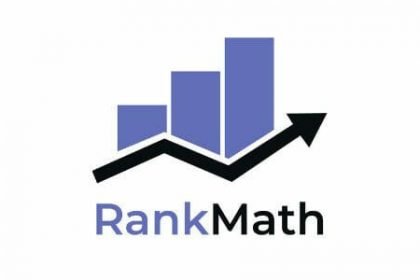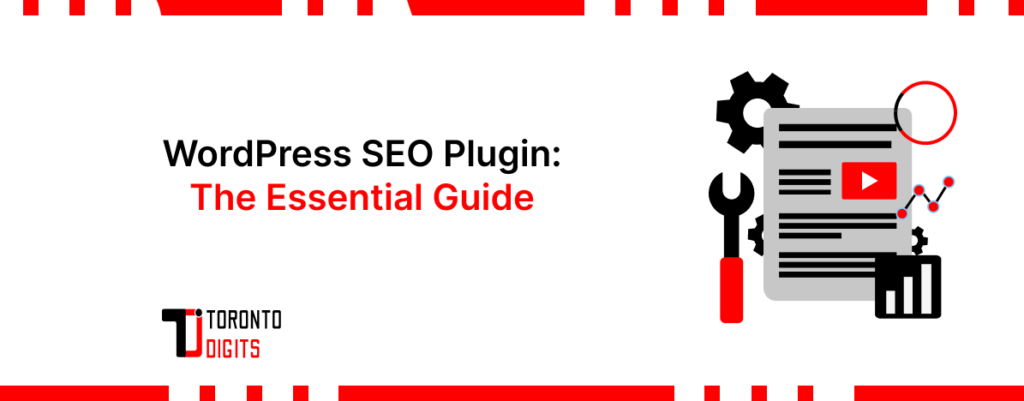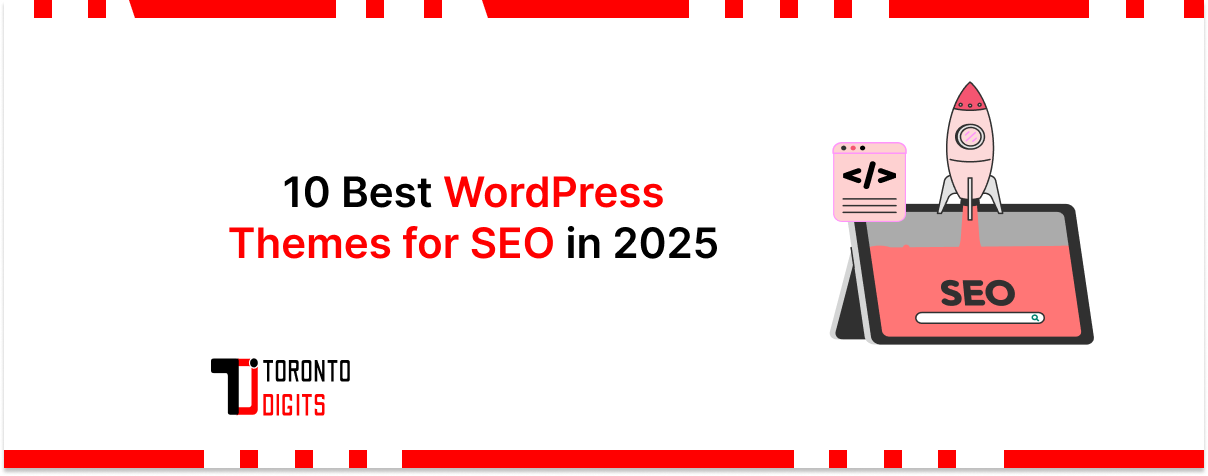Search engine optimization (SEO) is crucial for websites and blogs to gain visibility and attract qualified traffic in today’s competitive online landscape. For the millions of websites powered by WordPress, SEO plugins provide tools and automation to optimize content and site architecture for better ranking and performance.
The right SEO plugin can have a tremendous impact by facilitating essential improvements like:
- Optimizing title tags and meta descriptions
- Enforcing search engine best practices
- Adding structured markup data
- Managing site speed and caching
- Connecting analytics platforms
- Generating sitemaps and robots.txt
As awareness grows about the pivotal role plugins serve, interest particularly increases in solutions that incorporate artificial intelligence and machine learning for an added boost.
This guide examines the WordPress SEO plugin landscape, analyzing popular solutions relative to key selection criteria to equip you to best meet your site’s needs and objectives.
Popular Solutions and Key Capabilities
The WordPress ecosystem hosts a wide array of SEO plugin options, spanning from free solutions with basic capabilities to comprehensive premium suites with advanced functionality. Several standout plugins lead the pack in terms of popularity and performance.
Yoast SEO

The Yoast SEO plugin maintains over 5 million active installs, earning its place as a go-to solution and “household name” in many blogging circles.
Yoast packs an expansive feature set, including:
- Title and meta description templating
- An SEO analysis module providing readability and content optimization feedback
- Synonym management for powering semantic evaluations
- XML sitemaps generation out of the box
- Integration with Google’s Knowledge Graph to check content against known entities.
For many website owners, Yoast delivers the best balance of ease of use and functionality to address common SEO pain points. Those seeking more advanced capabilities may need to upgrade to paid packages.
RankMath

Trusted by over 1 million WordPress installations, RankMath prioritizes powerful but straightforward on-page optimization. The plugin excels at SEO best practices adherence via features like:
- Redirection manager for proper URL mapping
- XML sitemap generation
- Rich snippet markup support
RankMath also provides useful guidance to optimize content for ranking potential through related keywords and internal linking recommendations.
SEOPress

Used by sites like Microsoft and Samsung, SEOPress delivers extensive functionality without overwhelming complexity. The plugin focuses on flexibility and customization catering to site owner preferences.
Key strengths include granular control for priorities like:
- Local SEO optimization
- XML sitemap features
- Redirect management
- No-code site analysis diagnostics
All-in-One SEO

As a pioneering solution, All in One SEO maintains popularity given its continuity of updates and reliability across SEO foundations like:
- XML and HTML sitemap building
- Title tag templating
- Support for multiple focus areas, from local SEO to WooCommerce sites
- Redirect manager for proper URL handoffs
The plugin also stands out for breadth across other engines like YouTube video optimization demonstrating devotion beyond just standard Google customization. For sites needing a basic SEO toolkit, All in One SEO remains a steady contender.
| Feature | All in One SEO | Yoast SEO | Rank Math | SEOPress |
|---|---|---|---|---|
| Price | Free & Paid | Free & Paid | Free & Paid | Free & Paid |
| Meta Tags Optimization | Yes | Yes | Yes | Yes |
| XML Sitemap | Yes | Yes | Yes | Yes |
| Social Media Integration | Yes | Yes | Yes | Yes |
| Content Analysis | Limited | Extensive | Extensive | Extensive |
| Schema Markup Support | Limited | Extensive | Extensive | Extensive |
| Customization Options | Moderate | High | High | High |
| User Interface | User-friendly | User-friendly | User-friendly | User-friendly |
| Support | Premium | Premium | Premium | Premium |
| Focus Keyword Optimization | Basic | Advanced | Advanced | Advanced |
| Internal Linking Suggestions | No | Yes | Yes | Yes |
| Redirect Manager | No | Yes | Yes | Yes |
| 404 Monitor | No | No | Yes | No |
The Evolving SEO Landscape
As AI and machine learning gain traction, leading solutions rapidly integrate expanded “smart” functionality:
- Entity-based content building – analyzing text around detected people, places, and companies for search relevancy
- Semantic analysis and linking – understanding meaning to connect related posts
- Automated optimizations – metadata improvements, image alt text tagging
- E-A-T evaluations – checking content against Google’s core Expertise-Authoritativeness-Trustworthiness principles
Additionally, the market evolves around WordPress site architecture with popular new page builders and themes. Top plugins now work seamlessly across various environments.
Behind the scenes, though, consolidation unfolds at pace through key acquisitions like SEMrush grabbing Yoast competitors. Such shifts might gradually limit choice.
For site owners, distinguishing gimmicks from truly effective AI-enhanced performance poses a new challenge. However the possibilities around automation and improved optimization persist as captivating.
Evaluating Your Needs
With core capabilities fairly consistent across top plugins now, tailoring choices to your specific use case and objectives becomes critical.
Start by analyzing along dimensions like:
Goals and Focus
Depending on your site type and content model, prioritize accordingly. For example:
- E-commerce sites – product schema markup is essential
- Regional sites – local SEO citations are important
- Video blogs – video XML sitemap needed
Technical Integration
Review of plugins offers needed integrations with your website:
- Site builder – WPBakery, Elementor, Gutenberg
- CDN or caching tools
- Hosting environment constraints
- Analytics platforms like Google Analytics and Search Console
Budget
Factor in total cost and ROI implications from:
- One-time license fees or ongoing subscriptions
- Payment to access premium tools like metadata scrapers
- Savings from automation weighed against manual oversight hours
Usability
Especially important is ease-of-use around SEO capabilities like:
- Title tag and meta description editors
- URL slug optimization
- Image SEO tagging
- Readability analysis
Also, check the technical skills required and the admin interface navigation.
Support and Updates
Given shifting search algorithms, an active, maintainable solution should be favored over outdated options. Review:
- Developer community size
- Frequency of updates and feature improvements
- Responsiveness across contact channels like forums, Twitter
Using these key criteria tailors your choice to the unique needs of your website model and business goals.
A Strategy for Getting Results
Approach SEO optimization in phases – balancing effort against the ROI potential of proposed changes:
Quick Wins
Start by identifying low-effort, high-impact areas through an SEO audit using tools within your plugin. Fix technical errors or glaring omissions:
- Add a site-wide robots.txt file
- Implement an XML sitemap to index all site pages
- Configure the viewport and structured data metatags
Fill Major Gaps
Next address larger foundation elements central to performance:
- Complete critical page template title tag and meta description changes
- Fix home page speed by enabling caching, optimizing images
- Tag images with alt text descriptions to benefit visual search
Long Term Content Optimization
Elevate overall content quality through ongoing enhancement:
- Interlink related posts to reinforce site topical authority
- Analyze and improve post readability to boost visitor engagement
- Identify high-volume keywords to optimize pages around
Monitoring and Governance
Support optimization work by connecting key analytics platforms like Google Search Console and Google Analytics to better track impact. Install Google Tag Manager to manage tag deployment.
Appoint team members to govern efforts and continually optimize new content with assistance from AI automation. Maintain version tracking.
Endnote
The WordPress SEO plugin ecosystem matures at speed – delivering robust solutions to optimize sites for search visibility and performance. Both are focused on SEO improvement: plugins and overall WordPress development must evolve together to meet changing demands.
Top plugins build in sophisticated AI guidance and functionality while respecting site diversity, spanning bloggers to e-commerce storefronts. SEO plugins are crucial for enhancing visibility, and secure websites rank better in search engines, reinforcing the importance of security in optimization strategies.
Free options address basic needs while paid tiers cater to more advanced usage with premium integrations. Backups are essential for SEO stability, ensuring site recovery without losing search momentum after technical issues.
Still, search algorithms evolve as fast as plugin innovation. So vigilant attention remains required to site health and engagement analytics while balancing automated optimizations with ongoing human governance and strategic prioritization. SEO trends impact WordPress development, so staying updated ensures your site remains competitive in the search landscape.
For site owners willing to invest in understanding and selecting the right capabilities, immense dividends can be gained in connecting quality content with qualified audiences. Your essential WordPress SEO plugin guide should now deliver clarity for making optimizations that satisfy needs now, while offering flexibility for future search landscape shifts still ahead.




